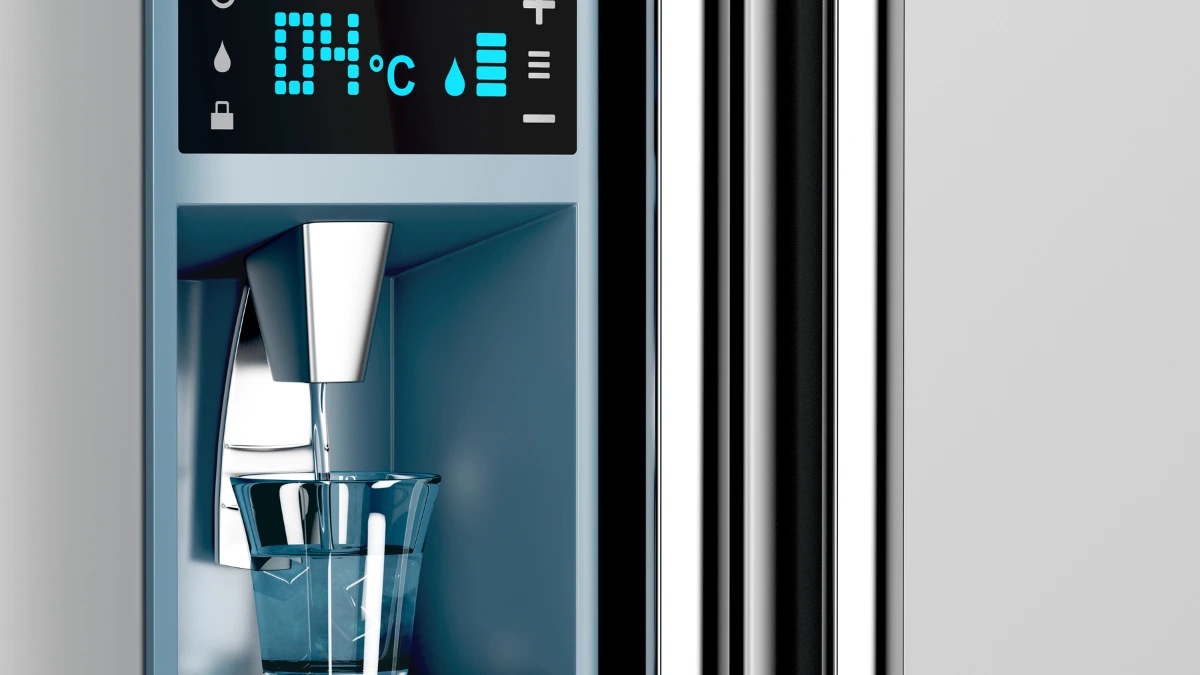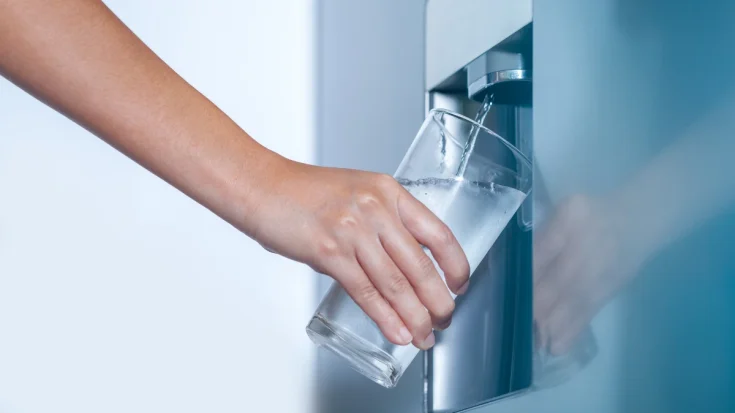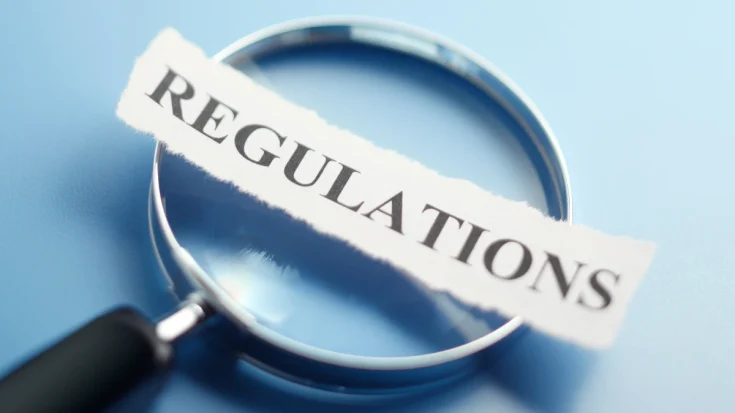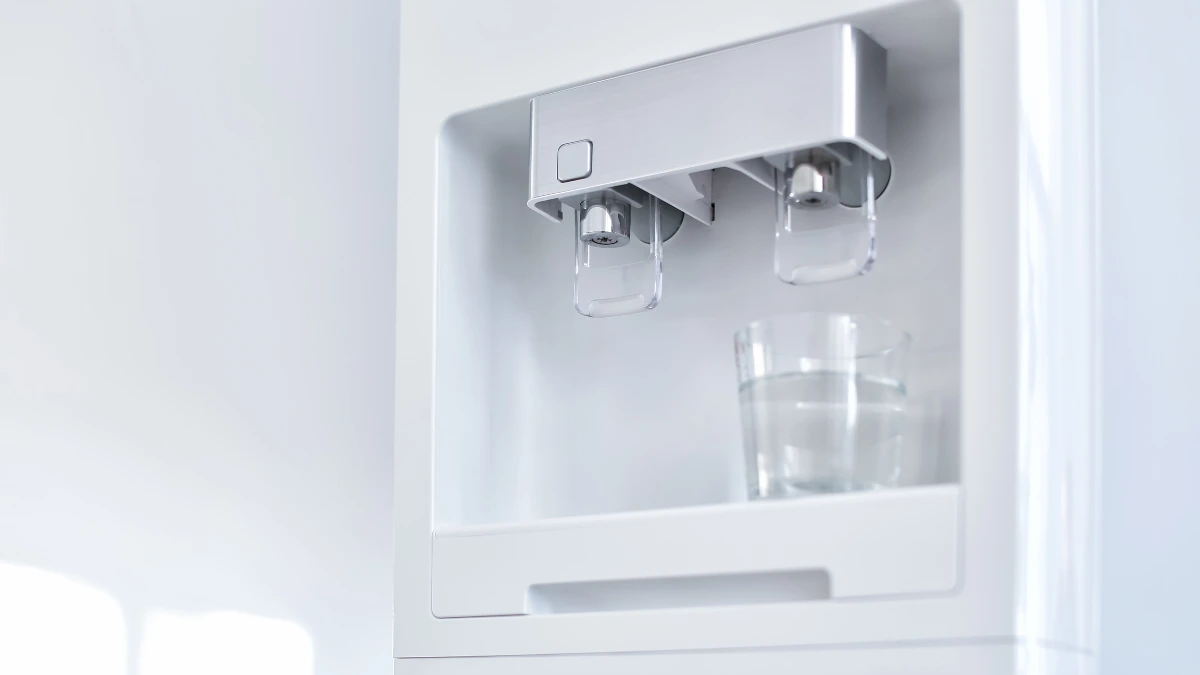Smart water dispenser is an electronic device that comes to complement the smart devices in your home when it comes to quenching thirst.
Not only do they keep you well hydrated, but smart water dispensers also provide a convenient, practical, fast, and clean experience in using drinking water.
This article will inform you about smart water dispensers, from their definition, working methods, functions, and the regulations of their use in Indonesia.
What is a Smart Water Dispenser?

A smart water dispenser is an electronic water supply device equipped with many advanced features, such as sensors, automation features, digital temperature settings, connectivity to mobile apps via WiFi or Bluetooth, and Internet of Things (IoT) connectivity.
With a wide range of features, this device provides a comfortable, more practical, fast, and hygienic drinking water experience compared to using a regular dispenser.
How Does it Work?
Smart water dispensers work just like regular dispenser devices in general. The difference is the automation and smart sensors it has. Generally, it works as follows:
- Sensors that detect: With infrared sensors, the presence of a glass or container before the water is dispensed can be detected. The volume of water in the gallon can also be detected to know whether the water is about to run out.
- Control and processing system: An electric valve regulates the flow of water precisely, so that it does not spill and as needed. Temperature and pH sensors ensure that the water comes out clean and at the selected temperature.
- Instant heating and cooling system: Tankless, so there is no need to wait for water to heat up.
All of the above dispensers can be controlled through the digital panel or smartphone app. This is especially useful for busy people who want everything to be automated.
The Functions

The main function of a smart water dispenser is to provide water for drinking. Here are some functions you can enjoy:
1. Regulate water temperature with precision
One of the main functions of a smart water dispenser is to regulate water temperature with precision. You can select the desired water temperature more accurately, even to keep the temperature constant.
2. Monitoring water usage
Monitoring water usage is another function of a smart water dispenser. You can track how much water you consume every day, whether individually or on a household or office scale.
3. Provides control via a smartphone application
Smart water dispensers can be connected to an app on your smartphone so that you can control the dispenser remotely. Dispenser functions such as turning on or off, adjusting the temperature, and monitoring water usage can be controlled with the palm of your hand.
4. Preventing water spillage
Preventing water spillage is another function of smart water dispensers. Some models are equipped with sensors that can detect the presence of a glass and automatically stop the water flow when the glass is full, preventing water spillage.
5. Connected to other smart devices
Another advantage of a smart water dispenser is that it can be connected to other smart devices. With this capability, the device can connect with other IoT devices to support greater automation in your smart home.
Regulations in Indonesia

The smart water dispenser uses technologies such as Bluetooth or WiFi that operate within a specific frequency spectrum. In Indonesia, any Bluetooth or WiFi-based wireless device is required to have a DJID (Directorate General of Digital Infrastructure) under the Ministry of Communication and Digital (KOMDIGI).
Smart water dispenser regulation is based on KEPMEN No. 260 Tahun 2024 for Bluetooth and KEPMEN No. 12 Tahun 2025 for WiFi, which requires all radio frequency-based devices to meet specific technical standards before being sold in the country.
The DJID certification ensures that the product meets government safety and quality regulations and does not interfere with other communication devices. The certification process involves technical testing, such as frequency adjustments, safety checks, and compatibility with the surrounding environment.
Once the tests are completed, products that pass are listed in a Test Result Report, which confirms that the product is safe and ready for sale in Indonesia. This report reassures customers that the product meets technical standards and is secure.
For companies wanting to sell a smart water dispenser in Indonesia, Type Approval Certification Services for ICT Products are available to assist with this process. This service includes preparing technical and legal documents, conducting required testing, ensuring compliance with regulations, helping companies streamline the certification process, and giving consumers confidence in certified products. [UN].

